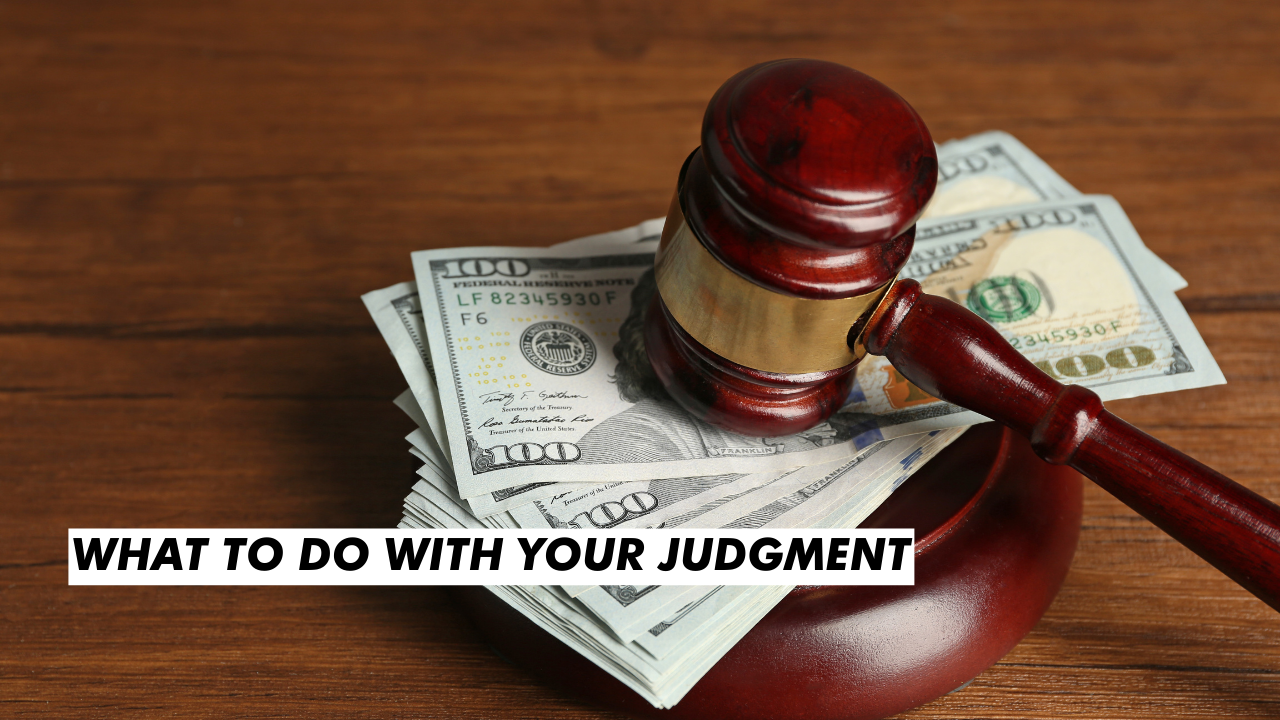
What to do With Your Judgment
So, you’ve just won a lawsuit you’ve been battling for months, and the court has ordered a money judgment to be paid to you. What now?
If you have been ordered a money judgment from your lawsuit, there are a few ways you can go about collecting your money. You can collect the full amount of your judgment plus any interest that has accumulated in the time it takes for the other party to pay off the total amount. When you win your lawsuit you become a judgment creditor, and the losing party becomes the judgment debtor. If the debtor is present at the trial and has the money at that time, they can pay you at that time, however if they do not have the money at that time the judge can set up a payment plan. If the debtor is not present at the trial, the court will send an order to tell the debtor to pay you in full within 30 days.
What happens if the debtor does not pay the judgment within 30 days?
If your debtor does not pay you as ordered by the court, you have some options for other ways to collect your judgment. One option for collecting is through the seizure of property belonging to the debtor, which can then be sold in order for you to receive the money that is owed to you.
Another option for collecting your judgment is through garnishment. Garnishment is a procedure where you can collect the money you are owed through taking in from the debtor’s wages, bank account, or other sources. There are three different types of garnishment, periodic, nonperiodic, and income tax intercept. A periodic garnishment will garnish wages, rent payments, land contract payments, or other debts on a periodic basis. A nonperiodic garnishment will garnish the debtor’s bank account or other property. An income tax garnishment will intercept the debtor’s income tax refund.
If you have any further questions on how to collect your judgment, please contact Fausone & Grysko, PLC at (248) 380-0000.
